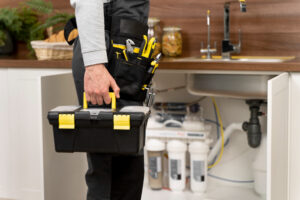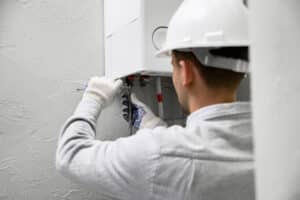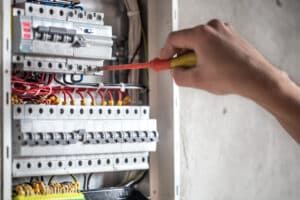Top 5 Tools Every Plumber Should Have in Their Toolbox
Introduction: Being a plumber requires a unique set of skills,...
Selecting the right water heater for your home is a decision that can significantly impact your comfort and energy bills. With various types and models available, navigating the options can be overwhelming. This comprehensive guide aims to simplify the process and help you make an informed decision based on your needs, preferences, and budget.
1. Understanding Different Types of Water Heaters: Before diving into the selection process, it’s essential to understand the various types of water heaters available in the market. These include traditional tank water heaters, tankless water heaters, heat pump water heaters, and solar water heaters. Each type has its unique features, advantages, and drawbacks.
2. Assessing Your Hot Water Needs: Begin the selection process by assessing your household’s hot water needs. Consider the number of people in your home, the simultaneous use of hot water appliances, and your daily hot water consumption. This evaluation will help determine the capacity and size of the water heater required to meet your demands effectively.
3. Energy Efficiency: Energy efficiency is a crucial factor when choosing a water heater. Energy-efficient models not only reduce your environmental impact but also lead to lower utility bills. Look for the Energy Factor (EF) rating on the product, which indicates the efficiency of the water heater. ENERGY STAR certified models are known for their superior energy performance.
4. Traditional Tank Water Heaters: Traditional tank water heaters store and constantly heat a large amount of water. They are suitable for households with consistent hot water demands. Consider factors like tank size, recovery rate, and insulation when evaluating tank water heaters. These units are generally cost-effective but may have higher operating costs due to standby heat loss.
5. Tankless Water Heaters: Tankless water heaters provide hot water on demand, heating water only when needed. They are compact, energy-efficient, and offer unlimited hot water. Consider the flow rate, temperature rise, and whether your household usage aligns with the capabilities of a tankless system. While they may have a higher upfront cost, the long-term energy savings can be substantial.
6. Heat Pump Water Heaters: Heat pump water heaters extract heat from the air or ground to heat water. They are highly energy-efficient but may be less effective in colder climates. Consider installation space, noise levels, and compatibility with your climate when choosing a heat pump water heater.
7. Solar Water Heaters: Solar water heaters harness energy from the sun to heat water. While they have a higher upfront cost, they can result in significant long-term savings and are environmentally friendly. Assess your home’s solar potential and local incentives when considering a solar water heating system.
8. Budget Considerations: Your budget plays a crucial role in the selection process. While it’s tempting to focus solely on upfront costs, consider the long-term operating costs and potential energy savings. Evaluate your budget constraints and choose a water heater that balances upfront affordability with ongoing efficiency.
9. Installation and Maintenance: Factor in installation requirements and maintenance when choosing a water heater. Some models may require specific venting or electrical considerations. Additionally, consider the availability of local technicians for installation and maintenance services.
10. Warranty and Longevity: Review the warranty offered by the manufacturer and assess the expected lifespan of the water heater. A longer warranty period often indicates the manufacturer’s confidence in the product’s durability. Consider the reputation of the brand and read customer reviews to gauge the reliability of the chosen water heater.
Choosing the right water heater involves a careful consideration of your household’s hot water needs, energy efficiency, budget constraints, and available space. By understanding the different types of water heaters and evaluating their features, you can make an informed decision that aligns with your priorities. Take the time to research and compare models to ensure you select a water heater that not only meets your immediate requirements but also contributes to long-term energy savings and overall comfort in your home.

Introduction: Being a plumber requires a unique set of skills,...

Introduction: Embarking on do-it-yourself (DIY) plumbing projects can be a...

Tankless water heaters, often heralded as the future of home...

Electricity is an indispensable part of modern living, powering our...

Green Plumbing: Sustainable Practices for a Greener Home In the...

Ensuring the safety and reliability of your home’s electrical system...